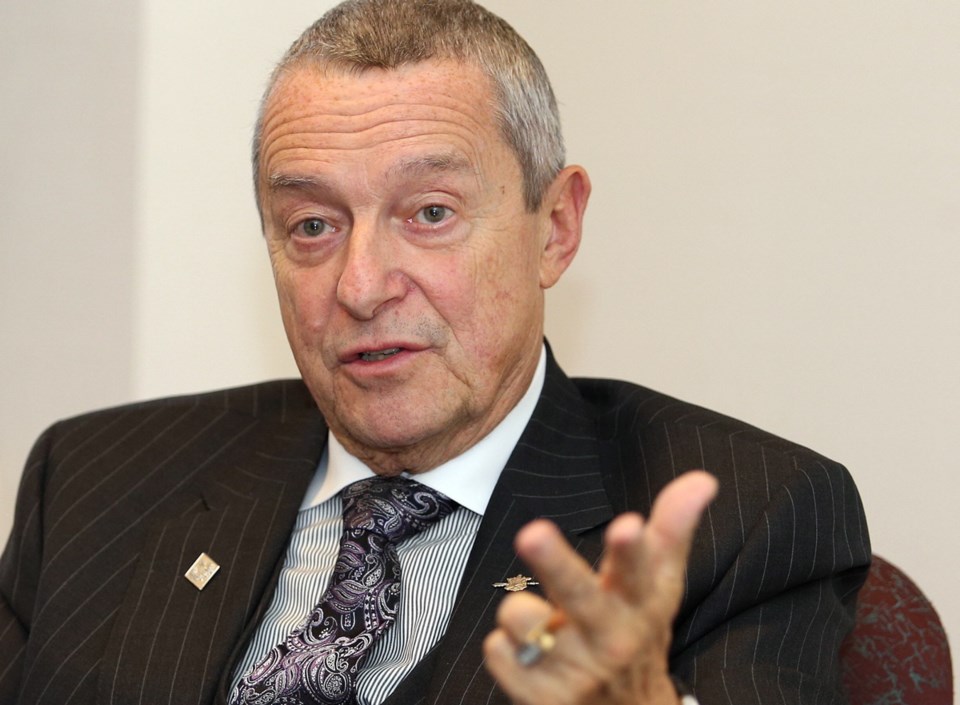Eight years after grade inflation was investigated at several small private schools in Vancouver, statistics show the practice appears to continue.
An analysis of marks found on the Ministry of Education website shows that at some small private schools, high marks are given to English 12 students who later go on to fail the provincial exam.
The Ministry of Education said grade discrepancies of more than 15 per cent are reviewed during annual inspections.
“I think if there’s anything inappropriate that’s proven to be going on, of course that’s always a concern,” said Minister of Education Peter Fassbender. “I know our ministry staff and inspectors are working diligently on it, so I have every confidence if there is anything, they will find it and deal with it accordingly.”
The education ministry may require schools to develop and implement plans to address this issue if it arises, the ministry said in a statement.
“The student populations at these schools are relatively small, but tend to be heavily weighted to international students. Provincial exams can be difficult for any student, especially ones taking it in a second or third language or with different cultural backgrounds, so it is not uncommon to see a greater divergence between course and exam grades in this demographic,” the ministry said.
An example of the divergence can be found at Vancouver’s Century High School, an independent school on Broadway near Granville Street, where 73 per cent of students got better than a C+ on their English 12 course work and just six per cent of students failed. But when they took the English 12 final exam, just 21 per cent got better than a C+ and 48 per cent failed.
The numbers are even worse at Royal Canadian College, where all the students got better than a C+ on their English 12 course work, but one-third of them failed the final exam.
As a comparison, at St. George’s, another Vancouver independent school, 100 per cent of students got better than a C+ on their course work, while 92 per cent did as well on the exam. At Kitsilano Secondary, a Vancouver public school, 81 per cent got a C+ or better on their course work and 80 per cent did the same on the exam.
In 2007, The Vancouver Sun reported that five independent schools would be decertified unless they moved quickly to address concerns about large disparities between English 12 marks on provincial exams and those awarded to students for English work in class.
Then-Minister of Education Shirley Bond gave Century High, Kingston High, Pattison High, Royal Canadian College and St. John’s International three months to meet specific ministry-imposed conditions. They are all Vancouver-based schools that cater mainly to international students and award B.C. graduation certificates. Kingston has since closed.
Fassbender said he is not making any similar threats at this time.
“We are on top of it (and) ministry staff is looking at it and we’ll see what they come up with, but I’ve got the confidence if there is anything we’ll find it and deal with it accordingly,” Fassbender said.
Travis Woloshyn, principal at St. John’s International School, said there is always a gap for international students between the course grades and the provincial exam grades. He said his school is working with the ministry and on its own to narrow that gap as much as possible.
For example, the school has introduced three levels of English before Grade 10 English, and doesn’t allow a student to move on until they are ready. They also added six hours of exam preparation to their English classes.
“It’s always going to be a challenge,” Woloshyn said. “The provincial exam in English is more designed with native speakers in mind. ... Some of the best students just can’t wrap their head around the provincial exam process.” In English 12, the provincial exam counts for 40 per cent of the final grade while in-class work counts for 60 per cent.
The University of B.C.’s Andrew Arida, director of undergraduate admissions, said UBC always gets both the exam mark and the course mark, and where there is a significant discrepancy, the school reserves the right to use the exam mark alone and will revoke admission offers. Last year, there were 91 newly admitted B.C. high school students who had their offer of admission revoked at UBC because of such a discrepancy, Arida said.
“At the end of the day, we’re doing our best to make decisions in a fair and equitable manner, but we are utterly reliant on grades from secondary schools and secondary school teachers, and we count on those grades to be accurate,” Arida said.
English is now the only senior year course that has a provincial exam.
“At the end of the day, those safeguards — to make sure grades are accurate — are very important,” Arida said. “We know that course grades in high schools in B.C. are as a whole, very, very reliable, but on a case-by-case basis there is no way to know.”
The other three schools did not return a request for comment.



